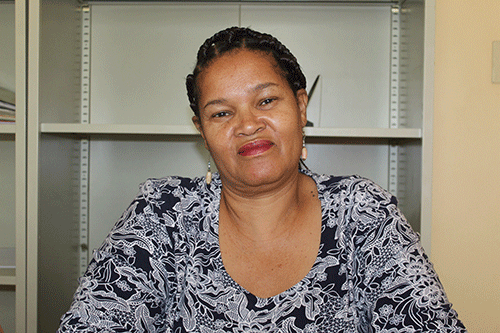MARIENTAL – As Namibians prepare to join fellow compatriots in Mariental, Hardap region to commemorate Heroes’ Day, New Era engaged some of the region’s inhabitants who shared the day’s importance in Namibia’s struggle for freedom.
Francis Basson, a teacher by profession in Mariental, said although being granted a study bursary prior to independence towards becoming a qualified teacher, she had to waive the opportunity as she has been involved in student uprisings by then.
“I could, in fact, only qualify myself in my profession at the age of 45 as I could not see my people being oppressed by the colonial South African regime and thus sacrifice my own interest and career advancement during the last years before our country got liberated,” she explained.
Describing her ordeal, she said as high school learners, they studied under the supervision of armed apartheid security forces who have been placed to oppress student uprisings for freedom.
“Irrespective of gender, we were forced to join the military cadet forces in high school and furthermore indoctrinated on how our black freedom fighters were labelled as terrorists killing innocent people,” she said.
The primary school teacher said they visited other towns secretly in the late-night hours in their mobilising campaigns to convince the masses to demonstrate against oppression and the denial of equal rights.
“As a group of students we demonstrated against discriminatory measures like the old inhumane sewerage system having no access to flush toilets and electricity, and through our actions change was then implemented, although minimal,” she added.
Basson said Namibians, regardless of political affiliation should really appreciate their fallen heroes/heroines who brought about independence, peace and stability, which was not offered on a silver plate.
Baster community leader, Kaptein Jacky Britz reasoned that the battle of Sam Kubis in a sense significantly contributed towards the country’s independence.
“One should remember that the Baster ‘Volk’ have, just like the Namas and Ovaherero, fought against German oppression and were just as much subjected to genocide,” he explained.
Britz added that it was through Kaptein Cornelius Van Wyk, addressing one of the South African generals during the First World War that it has been understood that the Basters refused to fight along the Germans against the Allied forces, including South Africa.
“It was at the battle of Sam Kubis where we survived the onslaught of the German armed forces with them withdrawing afterwards,” he said.
“In addition, one of our leaders, Koos Samuel Beukes was one of the first Namibians who petitioned to the United Nations against the oppression of our country and by virtue of this history, one cannot claim today that the Baster community did not contribute towards our country’s independence.
He asked, since these leaders sacrificed their lives, does that not qualify them also as heroes?
Britz said Namibians should also remember all health workers and religious leaders and honour them as heroes/heroines for their deeds, sometimes putting their own lives in danger during the devastating Covid-19 pandemic.
Evelyn Witbooi, great grandchild of the late Kaptein Hendrik Witbooi hailed him “Auta !Nanseb”. The legendary kaptein of the /Khowese clan as a brave hero and tactful, intelligent fighter stood for the fair treatment and free movement of all Namibians.
“My great grandfather ensured the unity of all clans and chiefs to fight against the German colonisers,” she emphasised.
She said the late Hendrik Witbooi (his son) who succeeded Auta !Nanseb was very much instrumental in the Bantu education system resistance which led to the establishment of the AME Private Community School in Gibeon where many of today’s leaders pursued their education, not following apartheid’s Bantu system.
“We should really appreciate the peace and stability in an independent Namibia which has been brought about by our forefathers whose blood waters our freedom and honour them accordingly on this national Heroes’ Day,” she concluded.
Religious leader pastor Josefat Fredericks reasoned that the liberation struggle was deeply rooted in the church, as it was at church services that the importance of a free and democratic country has been preached to followers.
“Just as Moses led the Israeli nation out of the Egyptian oppression, our leaders fought with blood for the freedom we are enjoying today,” he explained.
The clergyman said it was only due to the bravery of heroes like Hendrik Witbooi that apartheid and oppression are evils that disappeared from the country where peace and stability are now guaranteed.
“I cannot see how any Namibian living today in an independent country, enjoying total freedom and stability cannot see and recognise the importance of this national day we are about to celebrate this coming Friday, we should appreciate these bravery deeds by our heroes/heroines.” – sklukowski@nepc.com.na



